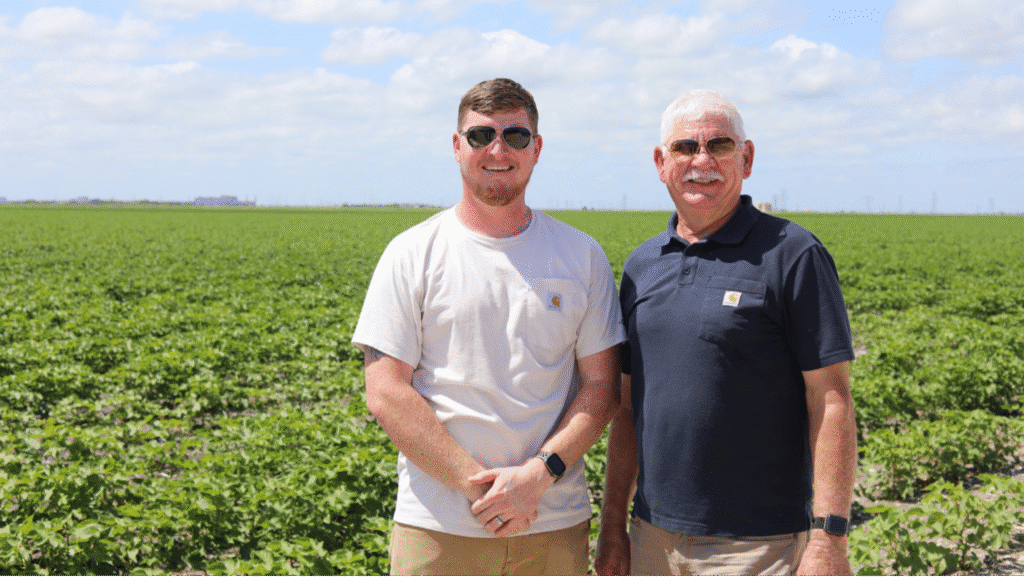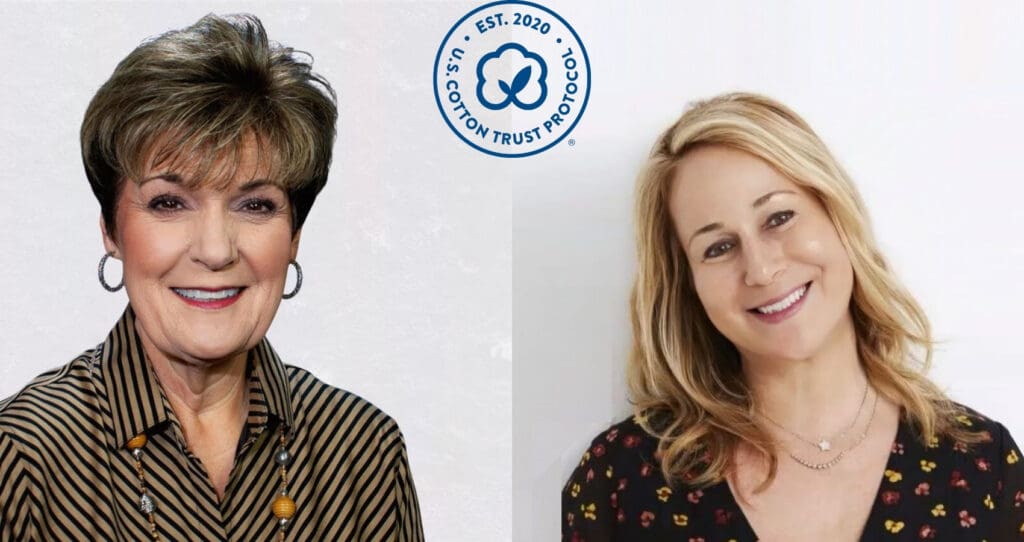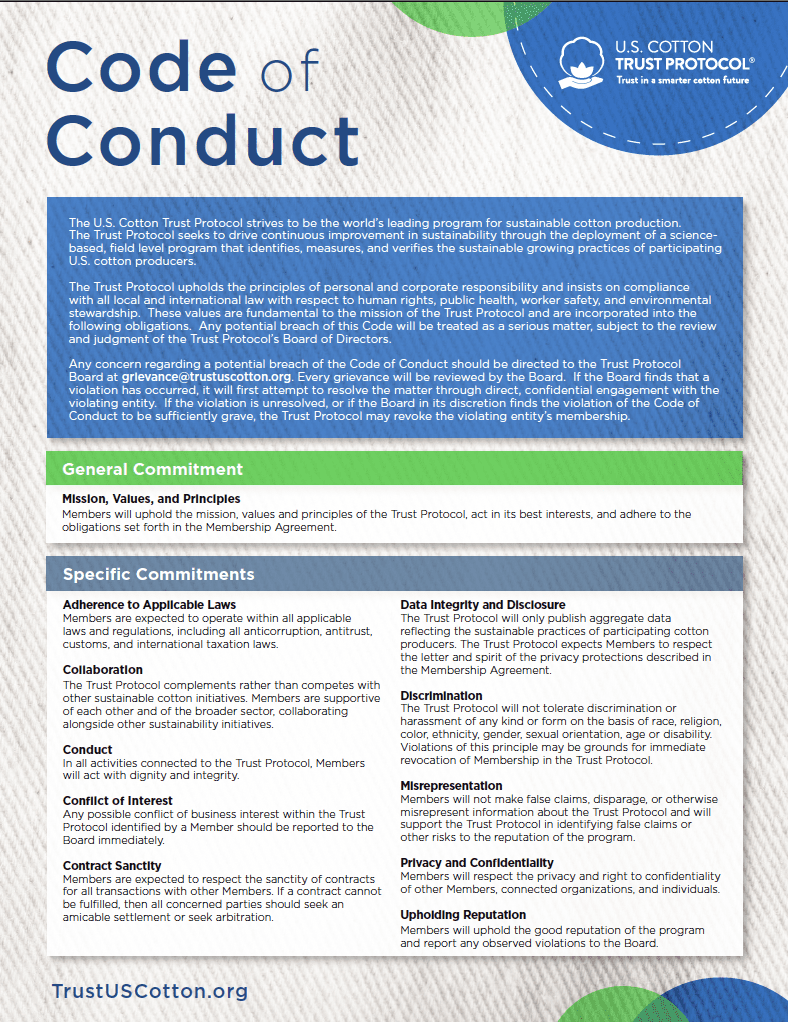The Beyer Family’s Adaptive Cotton Farming
For Marvin Beyer Jr. and his son, Marvin “Trey” Beyer III, farming in the Coastal Bend region of Texas is about working with nature’s unpredictable hand. On their multi-generational farm, they face a unique set of challenges – from the precise timing of rainfall in their heavy black clay soil to the narrow windows for planting and harvesting. But the Beyers don’t just react to conditions; they’re innovating by blending years of wisdom with a hands-on approach and advanced technology to optimize cotton production, so their land remains productive for future harvesting.
Farming in a Unique Climate
Unlike the arid conditions of West Texas, the Beyer family’s area receives a moderate 27-28 inches of rainfall annually, with the majority occurring in the fall. Marvin explains the benefits, stating, “Heavy black clay soil holds a lot of moisture… We’ve got deep topsoil. The underground moisture then will make these crops for us with very little help from Mother Nature at times.”
However, the challenge the Beyers face isn’t the amount of rainfall, but when it falls, and strategically working with that timing, creating a narrow window for planting and harvesting. As Marvin explains, “If we were to get that rain in July, that would just destroy the harvest for us. So, it’s the timeliness of it that makes it work.” Trey emphasizes the critical balance they seek when it is time to plant cotton: “We want the soil temperature to be up a little bit, we want to be past our last cold spell of the season, and we want good moisture out there.” This precise timing is crucial to avoid issues like stunted growth in cool, wet conditions or vulnerability to late-season tropical storms and hurricanes, which can devastate a crop just before harvest.
A Hands-On Approach to Innovation
The Beyer family’s operation is characterized by a hands-on approach, deeply rooted in their intimate knowledge and personal connection to the land. This understanding of their fields, combined with a forward-thinking mindset, drives their adoption of innovative practices and technologies, allowing them to optimize their resources and minimize environmental impact.
Strategic Crop Rotation: The Beyers utilize a beneficial crop rotation system, primarily alternating cotton with grain sorghum or corn. This practice is common in their area and serves multiple purposes. Grain sorghum contributes organic matter to the soil, which helps improve soil structure and reduce erosion. As Marvin shares, “The grain sorghum adds a lot more organic matter, and we try to keep it on top of the ground as long as we can… So that rotation helps us a lot.” Trey adds that cotton performs exceptionally well after a corn crop, attributing it to the organic matter and vast, albeit shallow, root system corn leaves behind.
Targeted Application Technology: A key technological advancement on their farm is the See & Spray system. This cutting-edge technology uses cameras to identify specific areas needing attention. With See and Spray, tiny cameras mounted along the equipment scan the ground, instantly differentiating between a cotton plant and weeds. When unwanted growth is detected, only the specific nozzle directly above it activates, delivering precise, targeted applications. The system’s dual-tank capability means that it can apply two different crop protectants at the same time, further enhancing efficiency. This not only reduces inputs but also minimizes the number of trips across the field, cutting back on fuel.
Precision Planting: Precision planting is a key strategy for the Beyers, optimizing seed placement and emergence. This technology is an investment that enhances their planting equipment to create a better, firmer furrow – the groove in the soil where the seed is laid. By helping ensure more uniform sprouting, this process leads to better plant emergence and ultimately helps save on costly seed.
Economic Realities and Long-Term Vision
Farming, especially cotton farming, comes with economic pressures. Marvin points out that “the markets are so low that that’s been a real burden to [them]. Seed cost is very expensive, and then by far, the harvest cost is just astronomical.” The narrow harvest window in their region necessitates a large number of machines to ensure timely harvesting, adding to the expense.
Despite these pressures, the Beyer family is committed to the future. “We’re in this for the long haul,” Marvin affirms. “Pass it down and leave it better than we found it.” This philosophy underscores their responsible practices, ensuring the land remains productive for future generations. Trey shares this long-term perspective, noting that farming has taught him the value of long-term goals and gains. He says, “If I take care of the land, the land takes care of me.”
The Trust Protocol: Building Trust and Marketability
Both Marvin and Trey see the U.S. Cotton Trust Protocol as a vital tool for their operation. Trey emphasizes its role in marketability and public perception, because it allows them to demonstrate their commitment to growing cotton sustainably and economically, meeting demand for responsibly produced goods. The Trust Protocol helps bridge the gap between growers and the supply chain, fostering trust and transparency.
The Beyer family’s dedication to their land, their embrace of technology, and commitment to transparency through initiatives like the Trust Protocol exemplify the resilience and forward-thinking spirit of U.S. cotton farmers. They are not just growing cotton; they’re cultivating a legacy of stewardship for generations to come.




